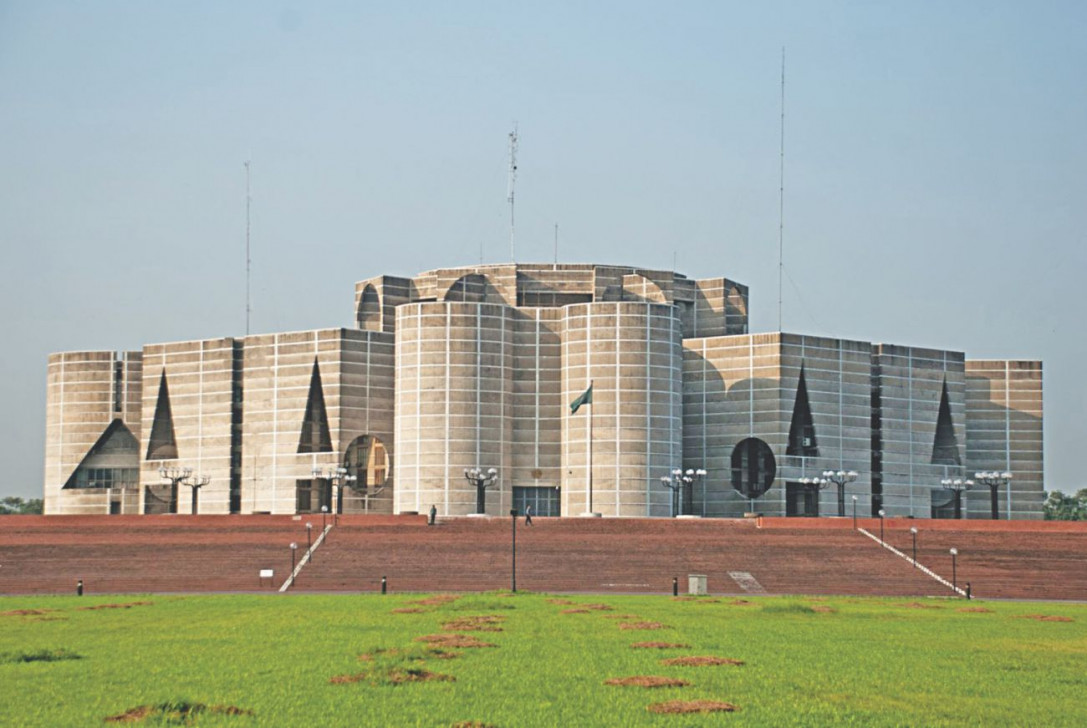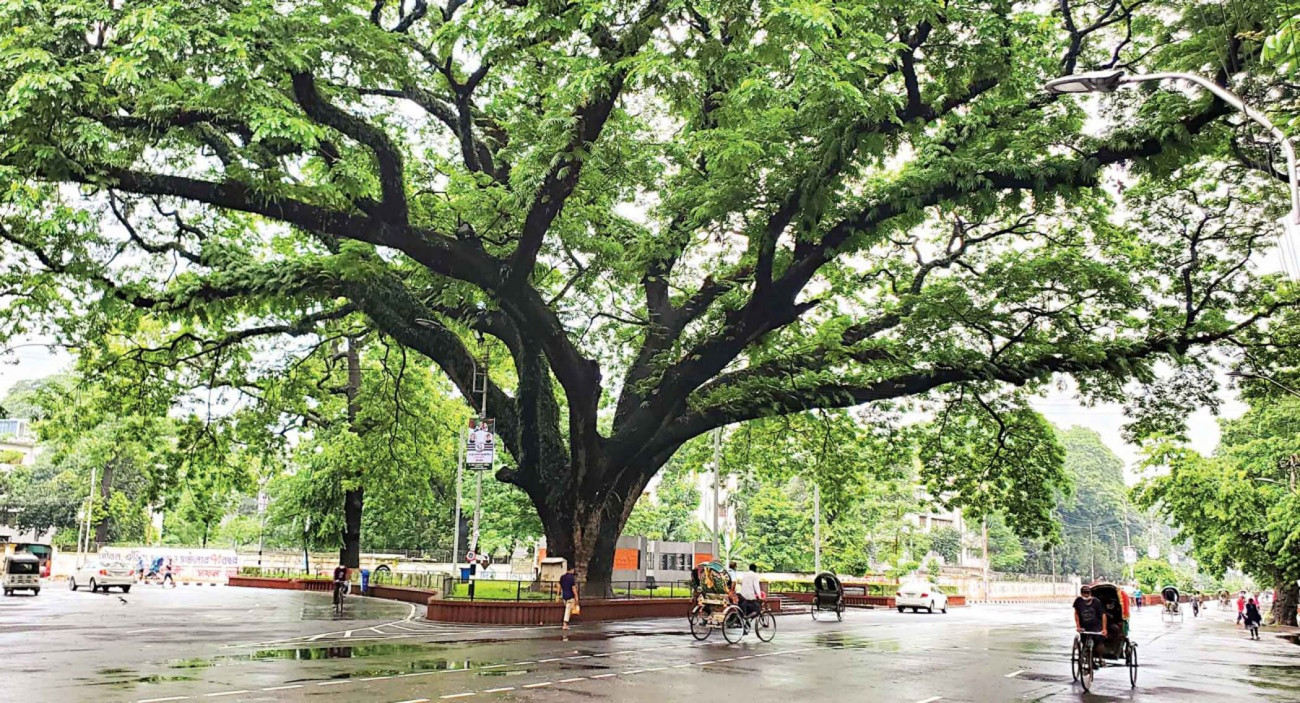Why our public buildings no longer reflect who we are

When I hear debates about rewriting the constitution, I cannot help but feel that the crisis is deeper than legal amendments; it is about the metaphysical foundation of our people, our collective memory and place. Institutions no longer reflect who we are. Laws are written and rewritten, monuments renamed, yet the void remains. The disillusionment after last year's uprising feels less like a political disappointment and more like an existential rupture, because when the forms of a nation, whether in law or in architecture, cease to embody the patterns of belonging, they lose their meaning.
I see this estrangement most clearly in our buildings. Modernism in Bangladesh was once more than just buildings to live in; it was an attempt to be metaphysically modern, to give shape to memory and aspiration at a moment when we were searching for our future. Public buildings were imagined as vessels of our identity, but they no longer speak to us. The ministries, courts, and city halls of today stand like fortresses, detached from the lives they are meant to serve, and even monuments raised in the name of memory feel like frozen gestures rather than living presences. This is why I think our architecture mirrors our politics. Just as architecture has slipped into technocratic utility, politics has collapsed into performance. The constitution is fought over as if it were only words, not the living covenant of a people. Buildings are erected as if they were only structures, not cultural expressions. In both cases, the dialogue with the psyche has been severed.
That is why Muzharul Islam's idea of a "return home" continues to resonate with me. When Muzharul Islam spoke of it, he was not calling for nostalgia but for a return to the psychic ground of the Bangalee people. A constitution can only endure if it grows out of that ground, just as a building can only be alive if it embodies cultural memory. Without this return, reform is cosmetic and buildings are lifeless shells. The July uprising, in its fury and its hope, revealed how hungry people are for recognition. They wanted more than new laws; they wanted forms in which they could see themselves reflected. Yet, that hunger remains unanswered because reform has been treated as a surface adjustment rather than a metaphysical renewal. I feel this every time I walk past a government building that does not belong to me, every time I hear promises of reform that never touch the ground of our being.
To me, architecture offers a lesson for politics. A parliament should feel like a courtyard where people gather, a library should carry the intimacy of a veranda, and a city square should echo the openness of a field. These are not sentimental images but metaphysical necessities; they are how a people recognise themselves in their forms. Without recognition, law and architecture both fail. Bangladesh cannot keep building its future on estrangement. To rewrite the constitution without returning to the psychic ground of its people is to invite another cycle of disillusionment, and to keep raising buildings that serve but do not speak is to deepen alienation. What we need is a return home, not to the past but to the ground of our being, where form and life are reconciled, where law finds conscience and space finds psyche. Without that return, both our politics and our architecture will remain uninhabited, like shells abandoned on the shore.
Maruf Ahmed is an architect and lecturer of the architecture department at Khulna University of Engineering & Technology (KUET).
Views expressed in this article are the authors' own.
Follow The Daily Star Opinion on Facebook for the latest opinions, commentaries and analyses by experts and professionals. To contribute your article or letter to The Daily Star Opinion, see our guidelines for submission.




 For all latest news, follow The Daily Star's Google News channel.
For all latest news, follow The Daily Star's Google News channel. 

Comments